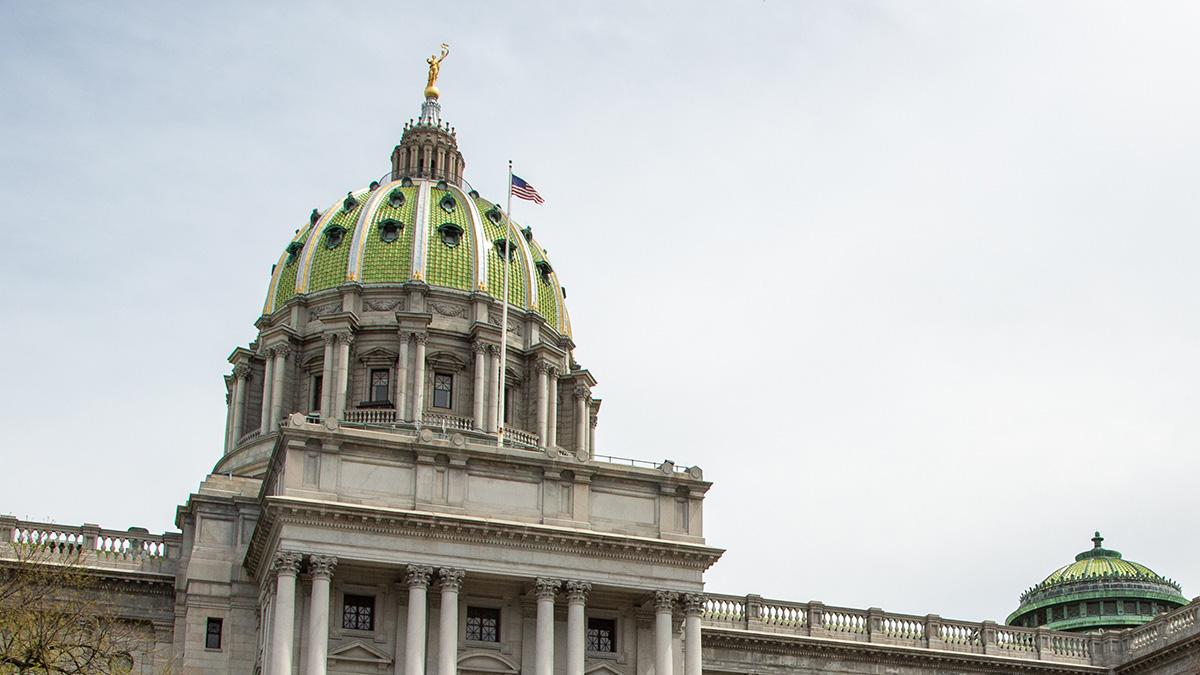What to Know
- The pandemic power struggle that's raged between Pennsylvania’s Democratic governor and its Republican-led Legislature over the year plus of COVID-19 will land on voters’ laps next month.
- It's taking the form of two proposed constitutional amendments to limit the length of disaster emergencies. The primary is May 18.
- There are four statewide ballot questions in all this spring. The others would put anti-discrimination language into the state constitution and give paid fire and rescue departments the same borrowing power that volunteer departments have had for decades.
A pandemic power struggle that has raged for a year between Pennsylvania's Democratic governor and its Republican-led Legislature will land on voters' laps next month in the form of two proposed constitutional amendments that could limit the length of disaster emergencies.
There are four statewide ballot questions being decided during the May 18 primary. The others would put anti-discrimination language into the state constitution and give paid fire and rescue departments the same borrowing power that volunteer departments have had for decades.
Republicans wasted little time getting the disaster emergency questions onto the ballot after losing a court ruling in July over a similar resolution that would have ended Gov. Tom Wolf's disaster declaration. Constitutional amendments must pass both chambers in two consecutive, two-year sessions but do not require the governor's backing.
Get top local stories in Philly delivered to you every morning. Sign up for NBC Philadelphia's News Headlines newsletter.
GOP leaders have denounced the wording for the referendums, developed by the Wolf administration, as loaded language.
“They clearly wrote it in a way for it to fail,” Senate President Pro Tempore Jake Corman, R-Centre, said in February, arguing the state's disaster emergency has gone on too long. “Look, even a benevolent dictator is still a dictator. And when you have unilateral control, one individual, that’s what you have.”
It’s unclear how much of Wolf's authority would be curtailed by passage of the amendments. Wolf’s aides argue that much of the administration's authority to impose social-distancing restrictions and shut down buildings or business activity comes from the Disease Prevention and Control Act, not the disaster declarations.
But Republican leaders say that without a disaster declaration, Wolf may not be able to enforce Disease Prevention and Control Act measures, and that regulations that have been waived under Wolf's direction would return.
"An emergency declaration is meant to give the executive branch the power to triage a crisis, not a vehicle for the governor to enact, amend and suspend laws and regulations for an excessive period of time," said Senate GOP caucus spokesperson Erica Clayton Wright.
Voters will decide whether disaster emergency declarations should expire after three weeks, rather than three months under existing law. A disaster declaration could only be extended, even in part, with approval by both legislative chambers. Lawmakers could end a disaster emergency with majority votes in each legislative chamber, instead of needing the two-thirds margin required to override a veto.
The proposed constitutional amendments are among efforts in statehouses across the country to rein in gubernatorial powers related to disaster response.
Wolf’s aides warn that putting disaster declarations into the hands of the partisan Legislature could risk federal funding and complicate the state’s ability to respond quickly. Many of Pennsylvania’s emergencies relate to weather and flooding, and they sometimes last more than three weeks.
Administration officials also wonder what might happen if an emergency centered on the Harrisburg were to delay the ability of lawmakers to convene, or if an issue arises in the month between legislative sessions.
"Any impediment to our agility is going to impact the folks that are most severely affected,” said Randy Padfield, director of the Pennsylvania Emergency Management Agency. Among the examples he cited — authorization to pay the National Guard and flexibility regarding procurement of supplies and services.
To help fight the opioid and heroin addiction crisis, Wolf has renewed a 2018 disaster declaration 13 times. Secretary Jennifer Smith, who heads Wolf’s Department of Drug and Alcohol Programs, said the declaration’s effect of cutting regulations and easing purchasing procedures was important in fighting the crisis, but she worries that renewing it may fall by the wayside in the Legislature.
“Although there seems to be general support for this issue, my fear is there are competing priorities with the General Assembly,” Smith said.
An extra “emergency allotment” in federal funding of the Supplemental Nutrition Assistance Program has been critical to keeping people fed during the pandemic, but it currently requires a disaster declaration be in place, said Teresa Miller, Wolf's human services secretary.
“If we're no longer able to provide these additional benefits to families to help make sure that they can put food on the table, I worry that we're just going to see more families hungry,” Miller said.
The third proposed constitutional amendment, bundled together with the disaster emergency changes as they passed the Legislature, would add a section that says equality of rights under the law can’t be violated based on race or ethnicity, paralleling existing federal protections.
As for the ballot question regarding fire and rescue company loans, Republican state Rep. Frank Farry, a longtime Bucks County fire chief, said the fund that provides 2% interest loans to volunteer companies can likely handle additional demand by extending eligibility to paid departments.
Because the original referendum in the 1970s mentioned volunteer companies specifically, Farry said, going back before voters rather than simply passing legislation may help insulate the proposed change against a potential legal challenge.
The money is used to purchase equipment and other capital improvements, and the fund has had a low rate of default on its loans, Farry said.



